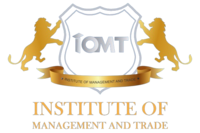
This role has a low level of AI exposure. Core skills such as adaptability, social intelligence, and complex physical tasks remain beyond the capabilities of current AI.
Explore all careersMechanical Fitters assemble and repair machinery using metal parts, assessing materials and ensuring equipment performance.
Get qualified to work as a Mechanical Fitter with a course recognised across Australia. Speak to a training provider to learn more.















In Australia, a full time Mechanical Fitter generally earns $1,924 per week ($100,048 annual salary) before tax. This is a median figure for full-time employees and should be considered a guide only.
 Courses.com.au Team
Courses.com.au Team
The occupation of Mechanical Fitter has experienced stable numbers over the past 5 years. It is predicted that there will be a moderate growth in the number of Mechanical Fitter roles in the coming 5 years.
Source: Australian Government Labour Market Insights
 Courses.com.au Team
Courses.com.au Team
To obtain a role as a Mechanical Fitter, you will need a relevant tertiary qualification. The Advanced Diploma of Electrical and Instrumentation Engineering for Oil and Gas Facilities and the Advanced Diploma of Electrical and Instrumentation Engineering in Mining both serve as a pathway to this career. Once you become a Mechanical Fitter, you may be required to complete additional short courses to undertake particular tasks in the workplace like driving a forklift.
 Courses.com.au Team
Courses.com.au Team
Browse occupations related to Mechanical Fitter



Are you considering a career as a Mechanical Fitter? The opportunities available through Mechanical Fitter courses in Hobart can set you on the path to success in various engineering fields. With 10 training options available in the vibrant Hobart area, you can gain the skills and qualifications required to flourish in this demanding role. Whether you are seeking to start your career or looking to upskill, investing in your education here is a great choice.
Upon completion of a Mechanical Fitter course, the career options are plentiful, extending beyond the traditional role. You may find interests in becoming a Plant Operator, an Electrical and Instrumentation Technician, or an Automation Engineer. Each position not only allows you to utilise your hands-on mechanical skills but also supports continuous learning in related engineering fields such as Engineering and Manufacturing Engineering.
Hobart's unique industrial landscape provides excellent job prospects for Mechanical Fitters, especially with the growing sectors in Mining and Oil and Gas. Enrolling in a Mechanical Fitter program helps you stay ahead in these competitive industries, where technical expertise and practical knowledge are paramount. The focused training offered in Hobart helps to bridge the gap between theoretical learning and real-world application.
For those who aspire to advance their careers further, there are numerous related job roles available post qualification. You may consider becoming a Mechanical Engineer or pursuing a career as an Engineering Tradesperson. Gaining additional qualifications can open doors to emerging roles like a Industrial Electrician or even a Manufacturing Engineer.
The versatile nature of Mechanical Fitter courses in Hobart ensures that individuals from various backgrounds can thrive in their chosen path. With an increasing demand for skilled workers in engineering and trades, now is the perfect time to explore the available training options. Embrace the opportunity to enhance your career prospects by enrolling in a course today and consider the rewarding journey ahead as a qualified Mechanical Fitter in Hobart.